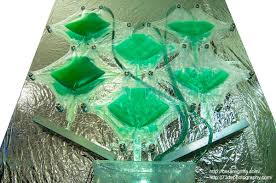Government Grants
Business Grants
Home Owner Programs
Federal Programs
About Us
Great Lakes Fish Monitoring and Surveillance Program
The Great Lakes Fish Monitoring and Surveillance Program (GLFMSP) helps EPA satisfy statutory requirements under section 118 of the Clean Water Act to establish a Great Lakes system-wide surveillance network to monitor the water quality of the Great Lakes, with a special emphasis on the monitoring of
toxic pollutants.
The goals of the GLFMSP are to collect, analyze, and report contaminant concentrations in Great Lakes top-predator fish, improve understanding of contaminant cycling throughout food webs in the Great Lakes, and screen for emerging chemicals in fish tissue to identify priority chemicals warranting future study.
The goals of the GLFMSP are to collect, analyze, and report contaminant concentrations in Great Lakes top-predator fish, improve understanding of contaminant cycling throughout food webs in the Great Lakes, and screen for emerging chemicals in fish tissue to identify priority chemicals warranting future study.
Agency: Environmental Protection Agency
Office: Environmental Protection Agency
Estimated Funding: $7,200,000
Office: Environmental Protection Agency
Estimated Funding: $7,200,000
Obtain Full Opportunity Text:
http://grants.nih.gov/grants/guide/pa-files/PA-13-141.html
Additional Information of Eligibility:
See Section 2 of the Notice of Funding Opportunity for eligibility information.
Full Opportunity Web Address:
http://grants.nih.gov/grants/guide/pa-files/PA-13-141.html
Contact:
Agency Email Description:
GLRI-RFA@epa.gov
Agency Email:
Date Posted:
2025-01-13
Application Due Date:
Archive Date:
2025-04-13
Social Entrepreneurship
Spotlight
When it Comes to Social Enterprises, Failure is the Best Platform for Innovation

In the world of social enterprises, failure is a cringe-worthy moment nobody wants to talk about. But, social entrepreneurs can benefit from their failures.

